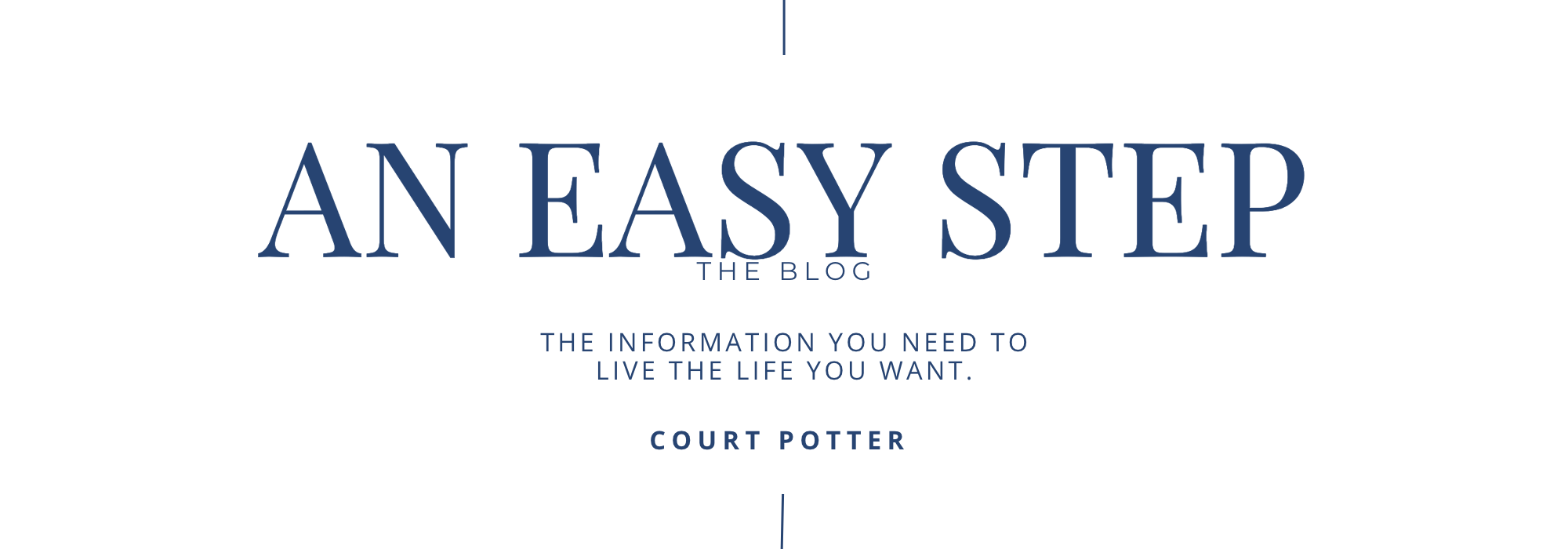

5 REASONS TO CREATE A LIST OF MEDICATIONS
“I believe the greatest gift you can give your family and the world is is a healthy you.” - Joyce Meyer
5 REASONS TO CREATE A LIST OF MEDICATIONS
You don’t mess with meds. Seriously carrying important medical information, such as current medications and other needs, can be a matter of life or death in the event of an emergency or unexpected health-related event.
Documents that include all relevant medical information should be easily accessible and provide clear details regarding the individual’s medical history, any conditions they may have, allergies to medication, and current list of medications.
This will ensure that the individuals are provided with appropriate care that suits their individual condition and needs. Not only should physical documents be carried with them but digital versions should also be kept and updated in case of any changes in their medications or conditions.
A well-documented set of medical records is especially crucial for those travelling outside their home country due to language barriers or overall variability in healthcare around the world.
In addition to this, ensuring that family members or close friends know about any changes to the individual’s medical situation could potentially save their life in a crisis as they would be able to provide first responders with up-to-date information.
REASON 1: TO ENSURE PROPER MEDICAL TREATMENT
Documenting your medical needs and medications is an important step to ensure that you receive the proper medical treatment during emergency or unexpected events.
By keeping a written record of information such as allergies, current medications, existing health conditions, insurance coverage, and contact information for physicians and family members.
Healthcare professionals will have access to critical information needed to make informed decisions about your care.
This documentation can also contain consent forms for treatments, such as resuscitation orders in case of an emergency.
Having this information easily accessible can also reduce the time required to treat a patient in an emergency situation and allow healthcare providers to identify any potential drug interactions or adverse reactions quickly.
This type of documentation is essential for providing appropriate medical treatment when necessary.
For example, if you have a documented list of your medical conditions and medications, then doctors will be able to quickly refer to it for any relevant history that might be pertinent to your situation.
Additionally, they will also have access to details such as allergies or sensitivities you may have to certain drugs that could otherwise cause harm. Furthermore, they’ll also know if there are any drug interactions that could compromise the effectiveness of the treatments being administered.
All these details can help guide their decision-making process when it comes to providing you with the right care in a timely manner.
REASON 2: TO TRACK THE EFFECTIVENESS OF YOUR TREATMENT:
Tracking the effectiveness of your treatment is a smart practice for any medical needs or medications you use. Detailed documentation can be extremely helpful when making insurance claims, particularly in the event of a natural disaster or other unexpected crisis.
By documenting all of your medical needs and medications, you can create a comprehensive list that includes information about dosage, duration, frequency, and more.
This not only ensures you have reliable records of what treatments are being used and how long they last, but it also creates an audit trail that will help support any insurance claims you make in the future.
Another way this information can help with tracking the effectiveness of treatment is through data analysis. By looking back at past records, it is possible to compare different treatments side by side to determine which ones worked best.
This kind of analysis can provide valuable insights into whether certain treatments are working better than others and if further adjustments need to be made to improve their effectiveness.
Furthermore, having accurate records makes it easier to spot potential adverse reactions to certain drugs or treatments so that timely actions may be taken to address those issues if necessary.
Finally, documenting your medical needs and medications also allows for better tracking in case of an emergency evacuation situation due to natural disasters or other events where traveling with medicines becomes necessary.
Having an organized record of all medication details ensures that all necessary precautions are taken during such times, avoiding any disruptions or unnecessary stress caused by forgetting essential items or supplies.
REASON 3: TO PREVENT CONFUSION OR MISCOMMUNICATION
Documenting all of your medical needs and medications can be a very useful tool in preventing confusion or miscommunication between medical professionals or caregivers. It can help to provide an accurate record of your past and current treatments, as well as any potential allergies or reactions that you may have.
By documenting your past and present medical information, a new doctor or hospital staff will have a clear understanding of what treatments and procedures you are comfortable with and which you are not.
This documentation can also help to provide an accurate summary of any changes in treatment preferences due to evolving health conditions.
For example, if you suffer from chronic pain, documenting the types of medications you've used, how often they're taken, and what side effects they may cause will give a new doctor valuable insight into the best methods for managing your pain.
In addition, it is important to document any supplements or alternative remedies that have helped to alleviate symptoms as this will allow the medical professional to gain a comprehensive understanding of your choice of treatments.
Overall, documenting one's medical needs and medications is critical for reducing confusion and miscommunication between healthcare providers when transitioning care from one provider to another.
Not only does it make the process more efficient by allowing quicker access to relevant details about a patient's condition; but it also helps protect patients from receiving inappropriate treatments based on incomplete information.
REASON 4: TO FACILITATE CARE FOR LOVED ONES
Documenting your medical needs and medications is essential in helping to facilitate care for your loved ones in the event that you are unable to communicate or advocate for yourself.
This information can provide invaluable insight into what medications you are taking, any preexisting conditions, as well as any allergies or sensitivities.
By having this knowledge readily available, it can be used to ensure that your loved ones are aware of your medical needs, allowing them to make informed decisions on your behalf if necessary.
For instance, if you have been admitted to the hospital but are unable to communicate effectively due to illness or injury, having a complete record of all of your medications can help doctors and nurses better understand what types of treatments may be appropriate for you.
Additionally, by having all of your medical information documented clearly and concisely, this ensures that any discrepancies in dosage or instructions regarding medicines can be addressed quickly and accurately.
Furthermore, documenting other crucial information such as any allergies or sensitivities you may have can help prevent potential adverse reactions caused by medication administration errors.
REASON 5: TO ASSIST WITH INSURANCE CLAIMS
Documenting your medical needs and medications is a great way to help with insurance claims. Having a record of this information can be especially helpful in the event of a natural disaster or other unexpected event, as it will provide insurance companies with the necessary details they need to process any claims you may have.
There are several ways to keep track of your insurance information and documentation of medical expenses. Keeping all relevant documents and forms in one folder can make them easier to access should you ever need them.
Additionally, if you receive bills or paperwork from healthcare providers, you should keep these on file as well. You may also consider investing in an electronic filing system such as Evernote or Dropbox, which can store both physical and digital documents securely.
It’s important to regularly review your records and check for any potential inaccuracies or errors; if something is incorrect, contact the health care provider or insurance company right away to get the issue corrected.
Additionally, when filing insurance claims, be sure to keep meticulous records of all conversations with your insurer so that you have proof of what was said during each call. Finally, make sure to always save copies of any paperwork that you send out related to your claim such as forms that prove financial hardship due to a natural disaster or other emergency situation.
By taking steps such as these, you can ensure that accurate information is provided and that your medical needs are accurately documented should you ever need to file an insurance claim.
With good record keeping practices in place and clear documentation available for review by insurers, getting reimbursement for medical expenses following an unexpected event will be much smoother and successful.
CONCLUSION
Taking the time to accurately and thoroughly document your medical needs and medications can provide numerous benefits in the event of an emergency or unexpected event.
Not only does this ensure that your health care providers have all the necessary information about your background and current health status, but it also allows for a faster response to any changes or urgent medical issues.
Furthermore, having this documentation on hand can help to streamline billing and payment processes, as well as reduce unnecessary visits or tests. Ultimately, taking the time to properly document your medical needs and medications can save you time, money, and stress in the future.

Pulling **It Together
10 Things You Need To Know
When Your Loved One Is In The Hospital
Witness the peace of mind you and your loved ones will have knowing how to navigate the system to ensure you receive proper care!
Feel Confident knowing all will be fine with you and your loved ones’ future with this guide.
Guide is taught with subject matter expert, Timothy Poore with ATP Healthcare, a post acute care placement agency for hospitals, rehabilitation facility, at home care, and patients.
Go to the Courses Tab for more information.




